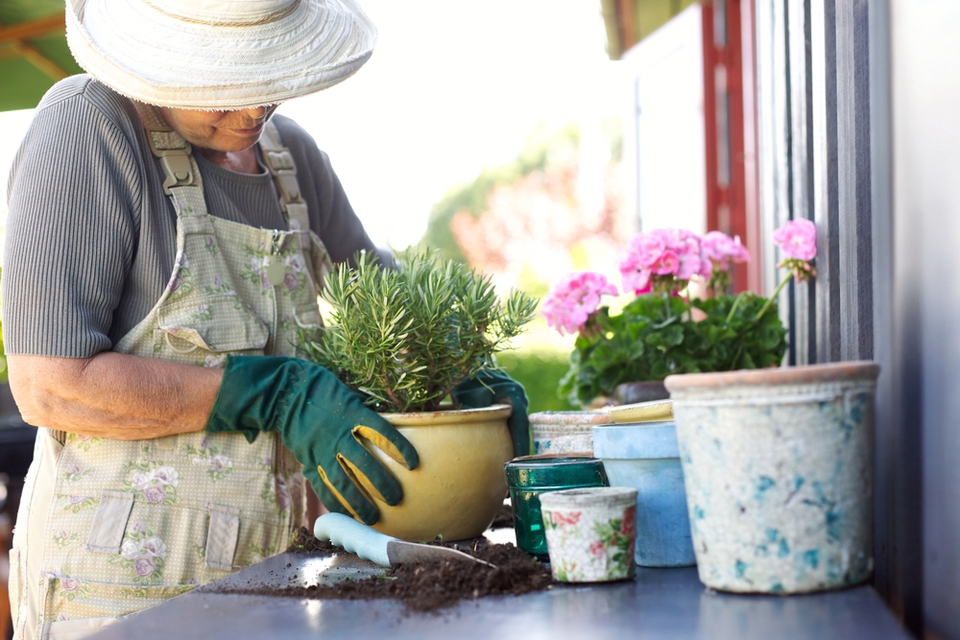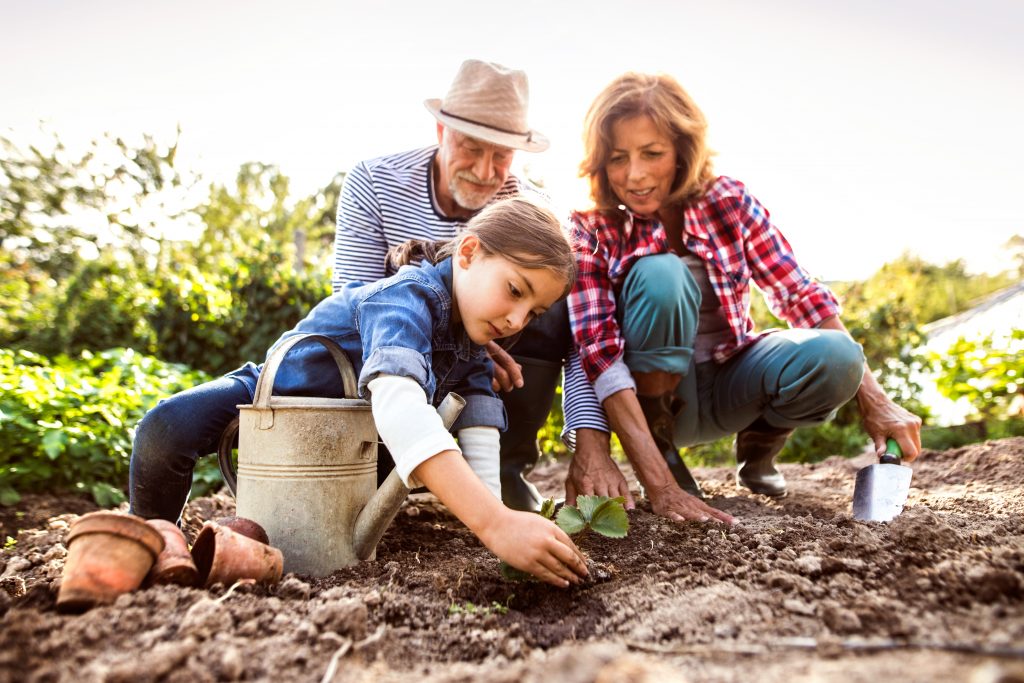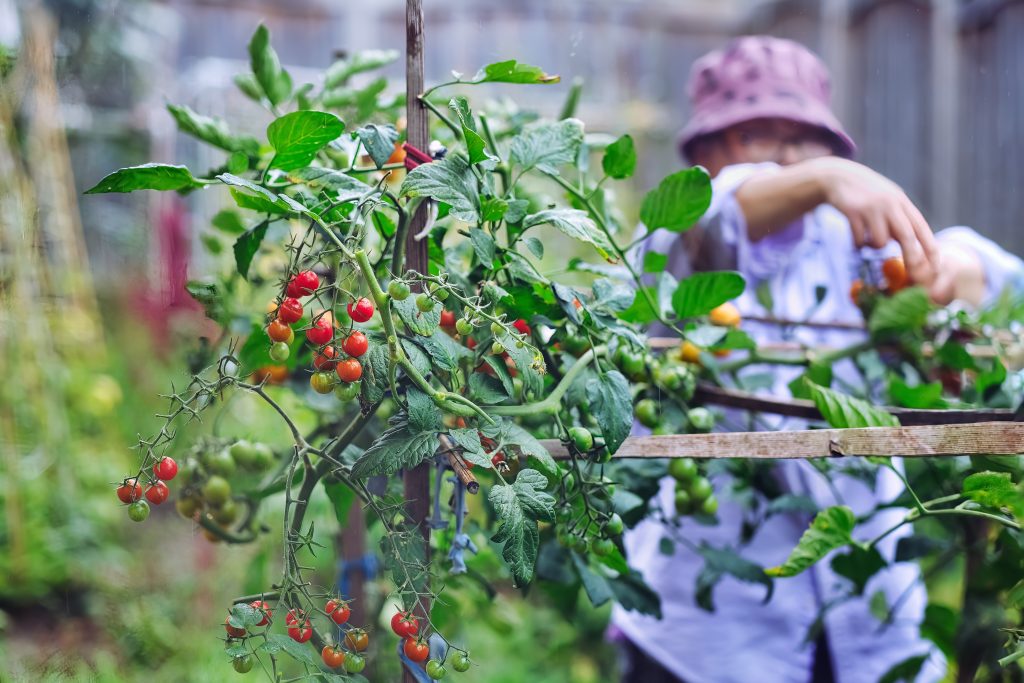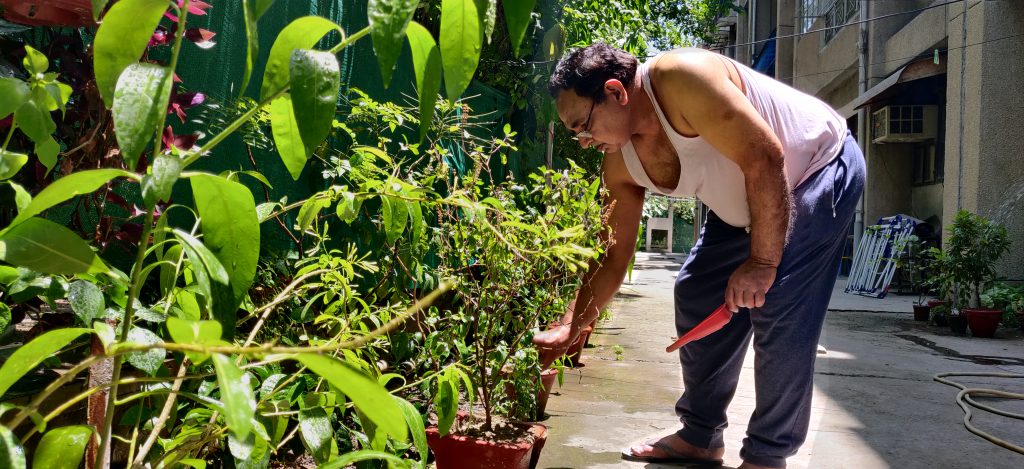Countless Indian movies songs are picturised in gardens. The hero running across the frame with open arms and the heroine running towards the hero and whatever follows. ‘Baug o mein bahar hai’ to ‘baug o mein bahar aaii ruth bakarar aai’ to ‘jeeevan ki baagiya mehaka gi’ and countless others songs. Almost every Indian movie has the hero, heroine dancing in the garden in the mustard fields of Punjab. Right from the Brindavan gardens in Mysore where the iconic song ‘nain so nain nahin milaoo’ from the movie Janak janak payal baje was filmed, to Shalimar Baug in Kashmir which was also a favourite of movie producers and dance directors. The garden is a favourite romantic location and my personal favourite is the Amitabh Bachchan-Rekha song ‘Yeh kaha aa gaya hum’ from the movie Silsila. The garden is what makes the song sensuous. I have yet to see a movie where a murder is committed in a garden.
So why not get inspired? Either go for a walk in a garden or do some little bit of gardening yourself. The benefits of gardening are far too many to enumerate in one article. However, if you’re looking for a fun, therapeutic hobby that will have a tremendous impact on your health and wellness, look no further than gardening. What better way to regain some youthfulness than by spending it outdoors in the safety of your garden? It is a perfect time to build a new garden, transform an existing garden, or simply tidy up and do the maintenance you never had time to do.
Here are some of the reasons to go get in the dirt, pull a weed, and plant a seed!
Good for your heart
Gardening is easily one of the best and most therapeutic activities anyone can do outdoors. It stimulates the body and soul, maintains flexibility and mobility, provides numerous health benefits, and helps you put fresh, organically grown veggies, fruits and herbs on your table. But, believe it or not, the benefits of gardening don’t even end there. Some studies suggest that there are cardiovascular benefits from doing manual labour of gardening. If you think about it, all the digging, planting and weeding will almost inevitably contribute to a healthy weight and blood pressure levels! Hard manual work burns calories and strengthens your heart. Studies from the British Journal of Sports Medicine found that those who engaged in gardening (for less than one hour weekly) reduced their risk of dying from heart disease by 12%. And those who gardened for more than two hours weekly reduced their risk of death from cardiovascular diseases by a whopping 37%!
Some studies show that physical activity and mental health benefits associated with gardening can help maintain cognitive health and reduce the risk of dementia.
It was found that those who regularly engaged in gardening had a 36% and 47% lower risk of dementia than non-gardeners, even when a number of other health factors have been considered.
What’s more, for people who are already experiencing mental impairment, even just a walk in the garden can be therapeutic. That’s why many residential homes for people with cognitive issues now have gardens on their premises, so that their residents with Alzheimer’s disease or other challenges can engage in this combination of physical and mental activity that can have a positive effect on the mind.

Reduce stress and anxiety
The smell of the mitti (earth) is exhilarating. Once a lawn is mowed the fragrance of the cut grass is a great mood enhancer. Gardening is not only beneficial for your body, but also your soul. Getting your hands dirty in the garden engages all of your senses and gives constant exercise to your imagination. Sketching your garden layout, determining the types and varieties of plans to work with, making countless decisions while taking care of your plants and your garden space — having a garden forces you to make hundreds of creative choices, which is also a great benefit to your brain health. If you’re feeling stressed or anxious, getting your fingers dirty could help!
You can choose gardening as a hobby, it can also be an opportunity for spending quality time with your family and friends Taking care of your garden gives you a chance to focus on something simple and pleasant. Putting your mind and body to work, seeing things growing and thriving has tremendous therapeutic potential. And if you are in it as a family, being around your loved ones is a great mood enhancer and helps reduce symptoms of depression and anxiety like nothing else!
Gardening is a great exercise
Gardening is a great exercise without having to follow a boring routine Tending to your garden will benefit your immune system in several ways. First off, digging and weeding exposes you to healthy bacteria that live in soil, giving your immune system a much-needed tune up. Secondly, gardening helps inhibit chronic inflammation (immunity’s worst enemy) by preventing vitamin D deficiency and keeping stress levels at bay.
Regular, safe exposure to a healthy amount of sunlight helps your body synthesize adequate amounts of vitamin D. This serves to increase your levels of calcium (a mineral essential for bone formation), which, in turn, benefits your bones.

Helps you eat healthier
There is a certain sense of joy in eating fruits and vegetables grown by you be it the humble, dhania, pudina there is a joy of eating the stuff you have grown. Let’s not forget that if you get serious about gardening, you’ll get to eat all the fresh veggies, fruits and herbs that you grow. And, if you’re eating what you’re growing, you are almost inevitably consuming more fresh produce than you would otherwise! Upping your intake of nutrients and fibre helps reduce the risk of chronic disease, improve immunity, and even promote weight loss.
It is obvious that home gardens are filled with fruits and vegetables grown by you and you would consume more of your homegrown fruits and vegetables. What does this mean for you? Well, obviously, you get all the health benefits associated with increased fibre intake (digestive health, lowered cholesterol… the list goes on).
But, as if that’s not enough, the food you grow is also the freshest food you can eat, meaning that it’s the best possible supply of vitamins, minerals and… antioxidants. In case you didn’t get the news yet, antioxidants are known to support brain health and prevent oxidative stress to brain cells.
Recent studies indicate that antioxidants may not only prevent, but sometimes even reverse some of the symptoms of age-related changes in brain function.

Keep your brain healthy
For those of us who want to keep their brain young and healthy and reduce the risk of dementia and Alzheimer’s, choosing gardening for a hobby seems to be an all-around amazing idea.
Not only is gardening a great way to get regular exercise (which improves blood flow and, in turn, memory), it also reduces the odds of cognitive decline thanks to the mental stimulation and stress relief that it can provide. Besides, studies show that a diet rich in home-grown veggies and fruits may prevent or even reverse some of the symptoms of brain ageing and cognitive decline , and if they are freshly picked, they are also considerably higher in beneficial nutrients than those you would buy in the supermarket!
While gardening lets us connect with people, it also lets us connect with the earth and give us some grounding. Feeling your hands through the soil while tending to seedlings, leaves a sense of satisfaction that’s hard to match with material things.
It is also a way to get in touch with our health and awareness of the foods we eat. Research has shown that gardening flowers, as well as growing herbs, fruits, berries, and vegetables, has a positive effect on our psyche and well-being.
If you live in an apartment, there are lots of ways to get creative with gardening. Planting microgreens and potted plants on your balcony is an ideal way to renovate your small outdoor space. Or make use of windowsills to add life and colour with indoor herbs or vegetable plants. To put the right plant in the right place is an ideal solution. A garden has unlimited potential and you can choose an informal or formal design. So, if you have an outdoor garden or live in an apartment, either way, gardening is a therapeutic activity for our minds and bodies. It helps lift the spirits and enhance the feeling of healing. Some ornamental plants like bonsai can be very engrossing understanding what to cut and when is also important so also the moisture in the soil whereas cacti virtually require only fresh air.

Young or old, healthy or struggling with mobility gardening is beneficial for everyone. Even the fittest bodies change with age. For younger people, gardening may seem like a pretty basic activity, but ageing comes with considerable physical challenges that can make gardening more difficult and less enjoyable than it should be. Seniors who are vulnerable to isolation and loneliness will find gardening is a great hobby to connect with yourself. There are endless amount of gardening clubs within your area where you could meet and discuss the nuances of moisture in the weather and how it could affect the soil where who have attempted to grow roses or potatoes. Through gardening and working with nature, we learn the art of patience and acceptance. We have to wait for things to grow but we have to nurture them too, and realising Mother Nature is unpredictable teaches us to accept what is beyond our control.
This does not mean we give up because through gardening we put in our best efforts and then let nature takes it course. Gardening promotes a growth mindset because we are learning every day what works and what doesn’t. We aren’t all born with botanical knowledge, so it is a peaceful and fulfilling way to learn and practice through trial and error. Gardening lets us experiment with creativity and we can do this alone or with our families. In fact, it is the best way to spend real quality time with those you love without the noise and distraction of the TV or the Internet. While gardening, by itself, does not prevent illness, it contributes to a healthy lifestyle like no other hobby we can think of. Gardening ensures you are present in the moment, concentrating on hope and life, so we can for just a few minutes, take our minds away from any anxiety or stress that you are all currently facing. Finding refuge in your yard can be grounding, calming, and healing! So what are you waiting for? Grab your tools and get in the dirt!



